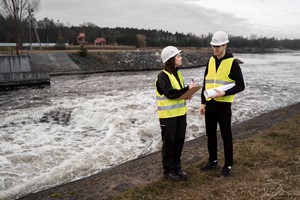A research team, led by the University of Exeter, has carried out what is said to be the most comprehensive assessment of risks posed by antibiotics in the environment in the UK to date, published in September in the journal Environment International.
The team discovered that the levels of the antibiotic ciprofloxacin are likely to result in increased antibiotic resistance in wastewater and, in some cases, potentially in rivers. Ciprofloxacin is commonly used to treat respiratory, skin, and urinary tract infections, amongst other conditions.
Crucially, the research shows that antibiotic pollution from human waste poses a risk in the environment in higher income countries like the UK, despite having longstanding sanitation infrastructures.
Antibiotic resistance is recognised by the World Health Organisation as one of the greatest health threats of our time. By 2050, up to 10 million deaths each year could be caused by antibiotics and other antimicrobial drugs no longer working to treat common diseases, including respiratory tract, sexually transmitted, and urinary tract infections. The threat of resistance could also increase the risk of contracting infection after basic surgical procedures.
Around 70 per cent of the antibiotics taken as medicines end up in the natural environment, through trace residues excreted by patients and inappropriate disposal of medicines, among other sources.
Bacteria are also present in these wastewaters, and when they are exposed to antibiotics, they can evolve resistance within these environments. This could mean an increased threat to human health, if resistant bacteria enter and colonise the gut, for example through swallowing water while swimming.
The research team at the University of Exeter Medical School compared this data to results from their previous studies, which determined the lowest antibiotic concentrations that increase antibiotic resistance. They found that there is a significant risk that the antibiotic ciprofloxacin could result in increased antibiotic resistant bacteria in wastewater and the environment.
The research found that the East of England had the highest risks of antibiotic resistance development in untreated sewage. The East Midlands saw the highest risks in treated sewage overall, with the West Midlands and the South West close behind. This also translated into highest predicted risks for these three regions in the rivers and streams receiving the treated sewage.














